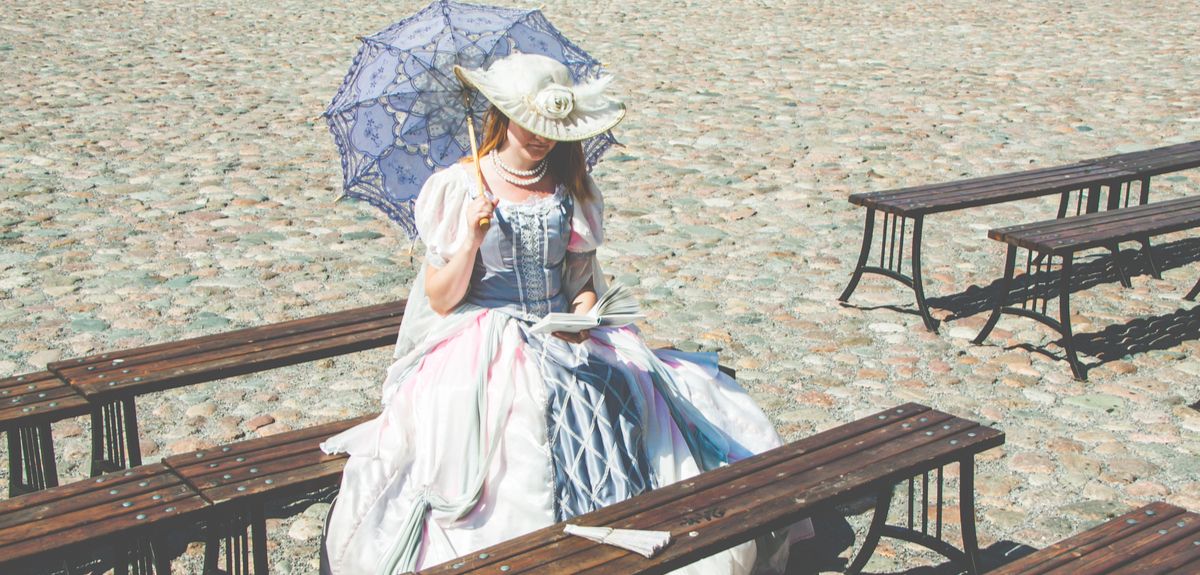
Pride or Prejudice? New radio documentary explores debates over novel reading
What do issues such as culture wars, content warnings and identity politics mean for what novels we read and how we read them?
Starting tomorrow [Tuesday 26 October], a three-part BBC Radio 4 documentary, Pride or Prejudice: How we read now, presented by Oxford University academic, Professor Abigail Williams, will seek to find out.
What we read says a lot about who we are. But Abigail Williams, Professor of English and a historian of reading, argues that recently something has changed in both how we read - and how we talk about it.
As we watch the recent furore over works from American Dirt to The Tiger Who Came to Tea, it seems as though battle lines are being drawn over the past and future of the English novel. Novels have always been controversial – from Tess of the D'urbervilles to Lolita to The Satanic Verses - but those rows about individual books are different to what’s happening right now.
As publishers call in sensitivity readers, universities introduce content warnings and authors face charges of cultural appropriation, Professor Williams looks beyond the outrage to explore the power of the novel.
As publishers call in sensitivity readers, universities introduce content warnings and authors face charges of cultural appropriation, Professor Williams looks beyond the outrage to explore the power of the novel
She says, 'The very basics of fiction writing and reading are up for grabs. The novel has become embroiled in arguments about identity and offence, which go right to the heart of what it means to imagine another life or world.
'Every day I witness first hand some of the ways in which ideas about books can divide us. The heat of contemporary identity politics the culture wars is all around me, in my college, my university, the work I do in museums and schools. In this series I wanted to get beyond the sound and the fury of these debates and to explore some of the deeper implications of this moment for our understanding of fiction and what it means to be a reader in the 21st century.'
Over the course of the series, Professor Williams interviews people from all sides of the political spectrum on these issues and explores what this means for the future of the novel. Many of these people have been involved in media and social media “storms” in relation to these issues.
The very basics of fiction writing and reading are up for grabs. The novel has become embroiled in arguments about identity and offence, which go right to the heart of what it means to imagine another life or world
Professor Abigail Williams
She says, 'Beyond the heat of individual debates, this moment raises some really interesting questions about what fiction can do and whether we still believe it can do the same things.
'There are historical parallels in that people in the 18th century were paranoid about the effects of novels, and that has come full circle in some of the discussions about content warnings and the effect of fiction on young people’s psyches. But some things are new, like the change in the contract between authors and readers. This relationship has got closer because of the ease of access to the author through social media, which makes people less able to divorce the author from their work in the way we might traditionally been taught to do when studying literature at universities.'
Read more about Professor Williams here The accidental academic: Professor Abigail Williams on Dead Poets, dangerous novels and her love for literature | University of Oxford.
The recordings of ‘Pride or Prejudice: How we read now’, will appear here from Tuesday 26 October: https://www.bbc.co.uk/programmes/m0010x29
 Oxford tops European university rankings
Oxford tops European university rankings
 Researchers find reducing salt in everyday foods could prevent tens of thousands of heart attacks and strokes
Researchers find reducing salt in everyday foods could prevent tens of thousands of heart attacks and strokes